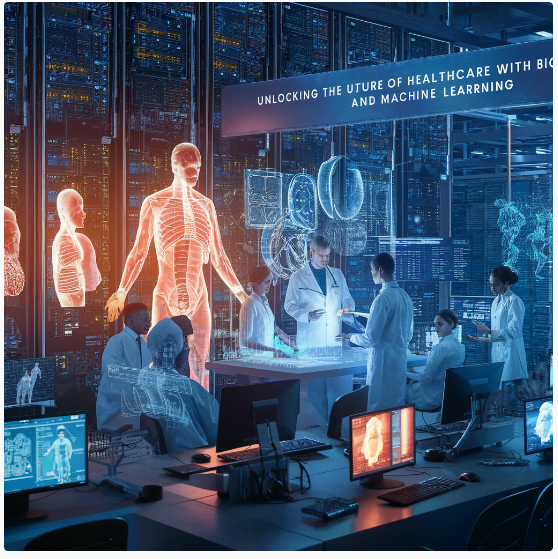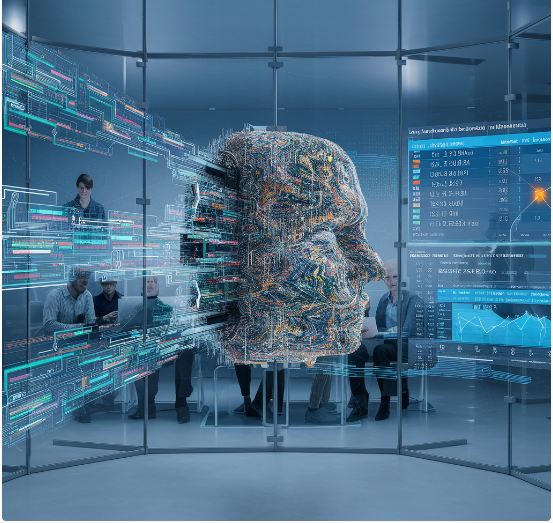Unlocking the Future of Healthcare with Big Data and Machine Learning

Introduction
In the healthcare space, big data and machine learning are making strides as well — from how we receive care to preventing diseases quicker and offering a more efficient way for discovering drugs. The five trademarks of an agile enterpriseCollecting data in healthcare is not particularly new, but the enormous amount generated every day -combined with recent breakthroughs in AI- creates a unique opportunity to make incredible progress within our increasingly complex problems.
The Power of Big Data in Healthcare
Big data can be described as immense amounts of structured and unstructured archival datasets collected from EHRs, medical devices, clinical trials in addition to wearable technology. This body of information is immensely valuable in understanding the health, disease and treatment success found with patients.
Healthcare providers can use this data to study broad datasets and monitor what may become a trend, prepare for early warning signs of diseases or target more specific treatments on the path for treatment. Moreover, Big Data may improve resource allocation in healthcare and reduce the costs of medical services as well become a catalyst in boosting overall efficiency of health care systems.
The Role of Machine Learning in Healthcare
A subset of artificial intelligence, machine learning provides computers with the ability to learn without being explicitly programmed. Some of the numerous tasks in healthcare where machine learning algorithms can be employed include:
- Diagnostics: Machine learning models can recognize diseases with ingest of medical images, patient records and genetic data.
- Medicinal drugs: Machine learning can help to study extremely difficult information in the form of chemical and biological data on a large scale, speeding up drug discovery and development.
- Personalized medicine — With the help of machine learning you can identify what patients are likely to benefit most from different selected interventions, based on his presentation.
- Detection of patterns in healthcare claims (Healthcare Fraud Detection): Machine learning algorithms can be used to sift through the various data points related to ongoing fraudulent activities with medical claims etc.
Leveraging Big Data and Machine Learning for Better Patient Outcomes
There is fantastic opportunity for patient outcomes to be dramatically improved by the conjunction of big data and machine learning. So healthcare providers are able to:Harness the power all of this technology for…
- Improved disease prevention: pinpoint risk factors and create tailored prevention efforts.
- Enhance treatment efficacy: Develop resource-sensitive patient-oriented communication and care programmes.
- Speed up drug discover: New, streamlined drugs discovery.
- Lower healthcare costs: Help organize resources efficiently, and eliminate unnecessary procedures.
Challenges and Ethical Considerations
Although the advantages of big data and machine learning in healthcare are vast, there also come challenges as well ethical considerations.
- Data privacy and security: Ensuring the safety of patient information from unauthorized access is a vital issue.
- Given that data is our product, however: Data quality and standardization — It goes without saying that you cannot derive insights from inaccurate or inconsistent healthcare data.
- Regulation Prospect A — Algorithmic bias: Machine learning models can be biased from training on a biassed dataset causing an unfair outcome.
- Ethical considerations: The application of AI in health care is associated with an array of ethical issues concerning, primarily to autonomy and accountability.
The Future of Healthcare with Big Data and Machine Learning
The future of healthcare is being projected as big data and machine learning that seek to change it positively in the world. As both of these technologies mature, we are likely to witness a much greater range of improvements in patient care and disease prevention or pharmaceuticals discovery. Addressing these challenges and ethical matters will allow the realization of an even greater potential to big data and machine learning for better health.






